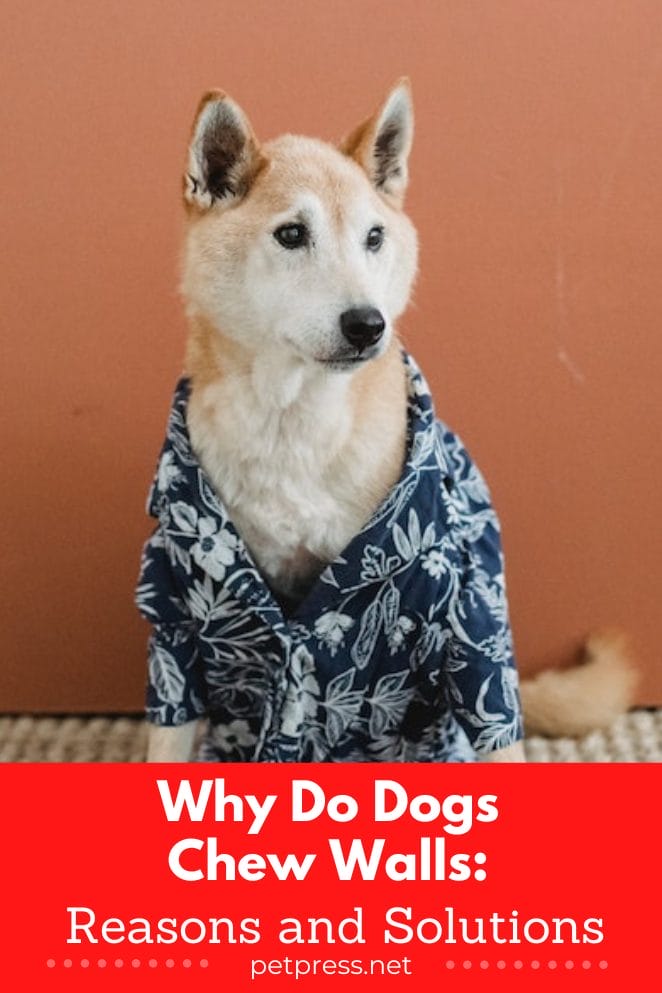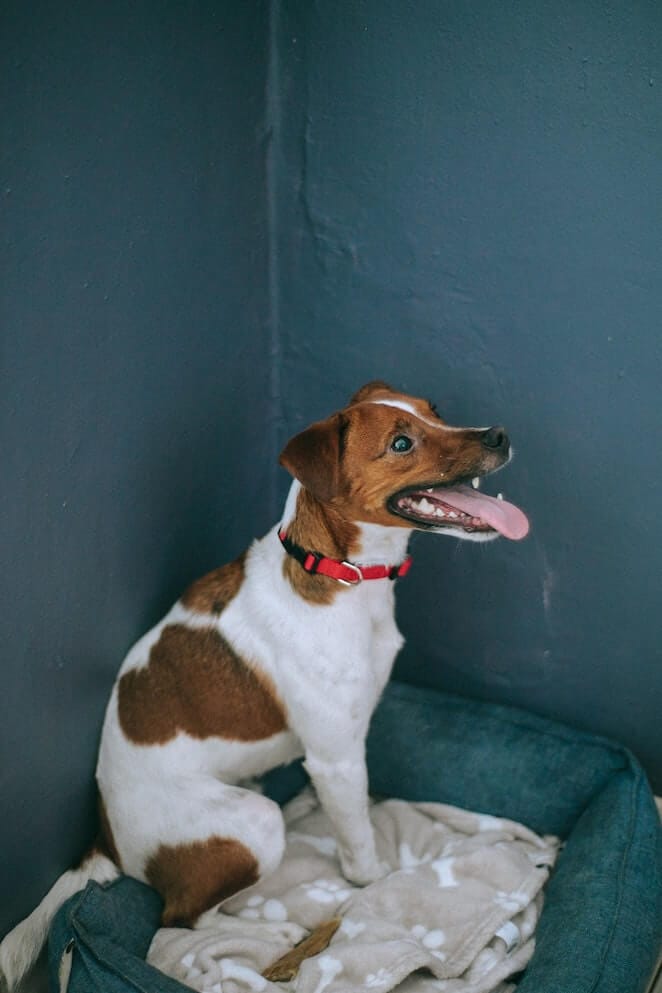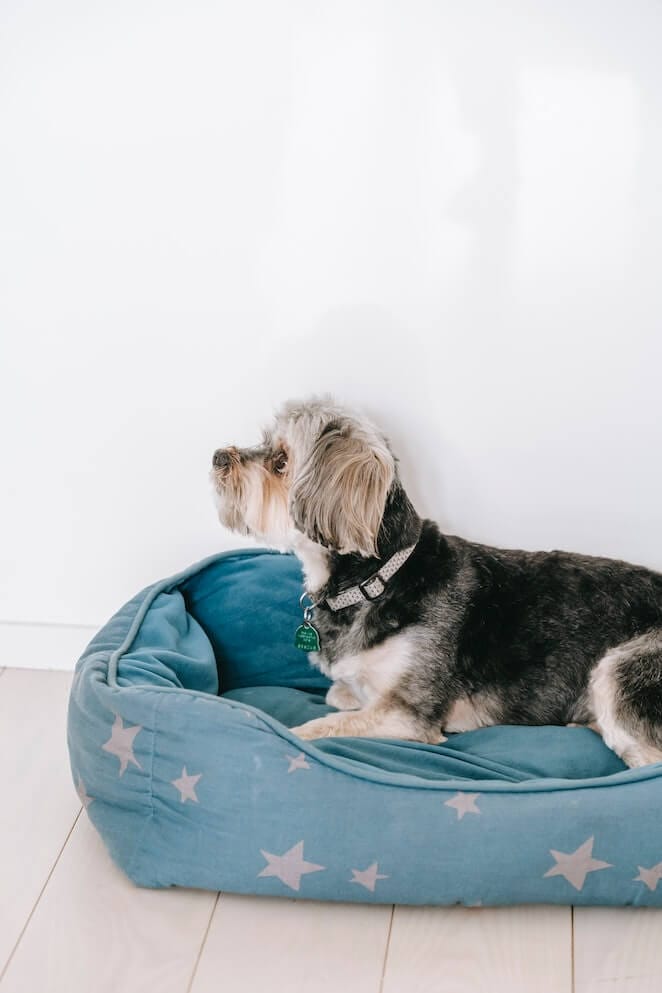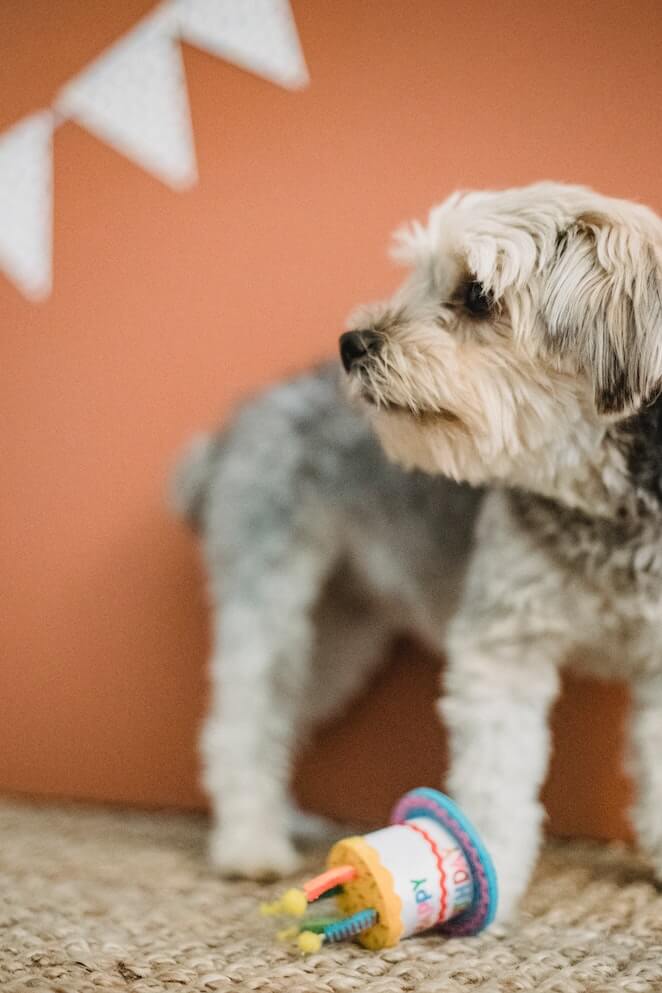
Why do dogs chew walls? Why not the furniture, or even the door handles?
Well, if you’ve ever owned a dog, you know that they have an uncanny knack for detecting every inch of available wall space in your house and using it as their own personal gnawing playground.
While it might seem like strange behavior to us humans, there are actually several reasons why dogs feel compelled to take a bite out of our home décor.
From teething puppies to playful adults, understanding why dogs chew on walls can help us better address this behavior and keep our four-legged friends from destroying our homes.
So grab yourself a cup of coffee and let’s get into why dogs think chewing on walls is a good idea.
Here are 10 reasons why dogs might be drawn to the walls in your home.
From exploring strange smells to seeking out attention, discovering these explanations could help you prevent your pup from destructive behavior while also keeping your walls intact!
Why Do Dogs Chew Walls

It’s a common problem that pet owners know all too well—dogs chewing on walls in the home.
It can be frustrating, destructive, and expensive to repair, but why do dogs chew walls in the first place?
Here are 10 reasons why your pup may be chomping away:
1. Separation Anxiety
Dogs with separation anxiety often display behaviors such as excessive barking, urinating/defecating indoors, and of course, chewing on walls.
If your pup won’t stop destroying your walls when you’re gone, it could be a sign of anxiety or loneliness.
Solution: To help ease their distress, make sure they have plenty of toys to keep them occupied and get regular exercise before you leave for the day.
2. Boredom
Without enough activity and stimulation, dogs will often resort to destructive behaviors, like chewing on walls.
Solution: If your pup is stuck in the house all day with nothing to do, it’s time to ramp up playtime or enroll them in doggy daycare for some extra fun!
3. Teething
Just like human babies, puppies need something to chew on while their teeth are coming in.
Solution: Providing plenty of safe and appropriate chew toys can help distract them from gnawing on walls during this uncomfortable teething phase.
4. Taste & Smell
Your walls may be coated in paint or other materials that have a pleasant taste or smell for your pup.
If you’ve recently had any renovations done, the walls may contain traces of wood, paint, or other elements that are irresistible to a curious canine.
Solution: If your pup is drawn to the taste or smell of something on the walls, make sure they have an appropriate outlet for their curiosity. For this squeaky toys are the best.
5. Attention
Chewing on walls can be a way for dogs to get attention, even if it’s negative.
Solution: If your pup likes to chew when you’re around, try giving them something else to do instead and reward them with positive reinforcement when they obey commands.
6. Stress & Fear

If there is stress or fear in the home, some dogs will resort to destructive behaviors like chewing on furniture and walls as a coping mechanism.
Solution: Make sure your pet has plenty of space to relax away from any potential triggers and provide plenty of mental stimulation to keep them occupied.
7. Hunting Instincts
Chewing on walls can be a way for dogs to explore their natural instinct to hunt and scavenge.
If your pup likes to gnaw on furniture or baseboards, it may mean they’re just trying to satisfy their primal urge.
Solution: Provide plenty of appropriate chew toys and challenges like stuffed Kongs to keep their minds occupied.
8. Comfort & Security
As puppies grow into adults, they often look for ways to self-soothe when feeling stressed or displaced in their environment.
Solution: Providing safe toys and blankets for your pup to chew on can help distract them from the walls in your home and give them something else to focus on when feeling uneasy.
9. Curiosity
Dogs are naturally curious creatures so it’s no surprise they may want to explore the surfaces of your home with their teeth.
Solution: It’s important to provide plenty of entertaining and stimulating activities for your pup so they don’t resort to destructive behaviors.
10. Nutritional Deficiencies
If you notice your pup chewing on walls, it could be a sign they are lacking certain essential nutrients in their diet and need more Vitamin C or Calcium.
Solution: Talk to your vet about nutritional supplements or switching up their food if necessary.
So there you have it—10 possible explanations for why dogs chew on walls! While it can be frustrating, understanding the root cause is often the key to finding a solution and keeping those four-legged monsters away from your walls!
Conclusion

While chewing on walls is not recommended, some dogs may still do it from time to time.
If your pup has an uncontrollable urge to gnaw at walls, make sure you address the issue as soon as possible by closely examining their environment and providing plenty of outlets for their energy and curiosity.
You can also speak to your vet about any underlying issues that could be causing the behavior. With patience and consistency, you’ll be able to get your pup back on track in no time!
- 7 Dog Breeds With Webbed Feet And Why Do They Have Them - July 19, 2023
- 10 Best Fish For Small Tanks That Make Perfect Pets - July 18, 2023
- How to Breed Guinea Pigs: A Detailed Guide - July 17, 2023


GIPHY App Key not set. Please check settings